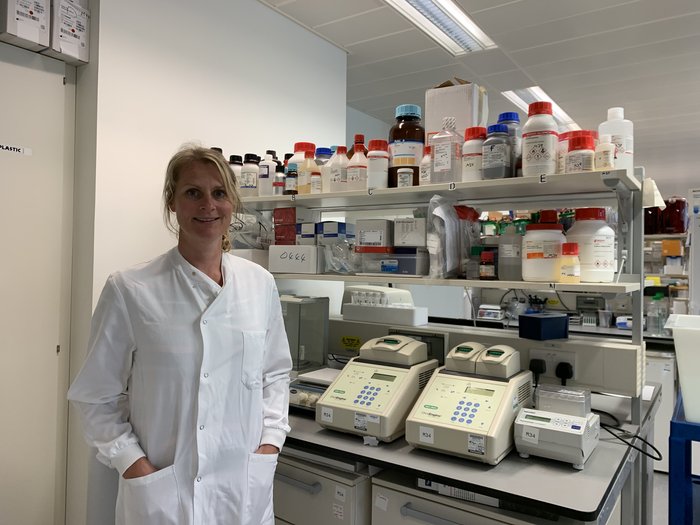Understanding the role of mutations in the blood as we get older
We are more likely to develop blood cancers as we get older. Dr Kirschner is trying to identify mutations that occur in our blood cells so people at risk of developing blood cancer can be monitored.

Dr Kristina Kirschner
The challenge
As we age our ability to make blood cells becomes less efficient which puts us at a greater risk of developing blood cancer. The DNA in our blood cells act as an instruction manual, telling our cells how they should grow and what they should turn into. However, sometimes, these instructions aren’t correct, which can cause alternations in our blood cells, meaning they don’t behave as they should. Sometimes, these alterations manage to escape undetected. At present we don’t know much about the alterations that may predict whether an individual is at risk of developing blood cancer, so we can’t identify the best treatments.
The project
Dr Kirschner and her team will study blood samples of 1,5000 people that have been collected over the last 12 years. These blood samples are from people who do not have blood cancer but have donated their blood to research. The team plan to study these blood samples and look at the DNA instruction manual to see which alternations they contain and where they are. Kristina then wants to create a catalogue of mutations from looking at these blood samples to help them to predict whether people are likely to develop blood cancer in the future.
The future
If Kristina is able to identify these alterations and create a catalogue of them, she hopes it might be possible for this to be used as a screening tool in the future to look for alternations that could predict if someone is likely to get blood cancer. If it looks like someone has these alterations and may be more likely to develop blood cancer we can monitor these people over time, which will allow earlier diagnosis and treatment.
